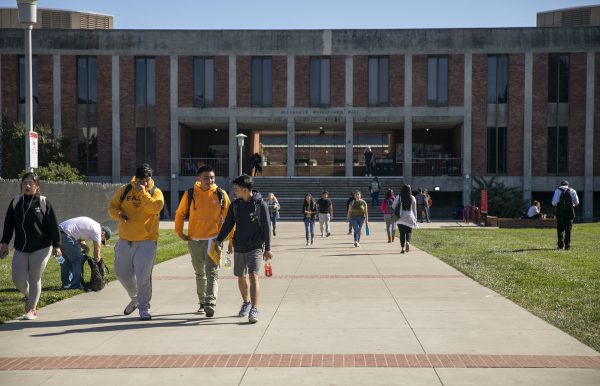The difference your major makes after graduation
October 19, 2018
Recent graduates are still having a hard time seeking job opportunities despite the job market’s improvement since the last recession.
One out of every 40 college graduates is unemployed, according to the most recent report of the Bureau of Labor Statistics. This raises the question in regard to whether or not a student’s degree option has anything to do with it.
California State University, East Bay offers over 51 baccalaureate degrees and countless of campus resources for life after college.
In 2016, The National Center for Education Statistics showed Science, Technology, Engineering, and Math (STEM) majors having the lowest unemployment rate within the first six months of graduation: 1.1 percent.
The census also showed that only a quarter of the workforce are employed in industries that correspond to their field of study in college.
“I currently work at Express right now and while its lowered my ego a little bit, it’s better than sitting on the couch the whole day,” said CSUEB alumni, Cindy Tran “I still live with my parents and they’re still repaying my student loans while I get back on my feet and find a big girl job,”
Tran got her degree in Communication with an emphasis on Professional, Public and Organizational communication and graduated this past June. She has applied to over 45 jobs ranging from entry-level corporate openings to receptionist and customer service positions.
“I’ve applied using different platforms like Linkedin, Indeed and Glassdoor. Each entry level job requires an experience in the field. How does someone get experience when a company can’t give you one,” said Tran.
Another alumni, Ronnie Salvador, who graduated back in 2016, was a Health Sciences major. He now works at a school district that he wishes not to name and is a special education teacher.
“After college, I wanted to take my Master’s and eventually become a P.E teacher but after shadowing a colleague who specializes in special ed, I decided to shift in that direction and be one myself. I’ve only been teaching for a year and I love it,” said Salvador. “I would probably choose Psychology so I will have a better idea on how the human mind works because that’s an essential part in my job right now.”
Based on the information that these two alumnas gave, their majors did not have a significant impact on their careers. They went on to different paths than they had originally intended because of the lack of opportunities in the job market.
Major options do not necessarily affect student’s lives after graduation and employers are likely to hire graduates with an unrelated degrees in their field.
It is best to take every opportunity to network, be proactive about job hunting and make sure to have some experiences outside of the chosen major because graduates never know what career they may end up in, according to the career advice website The Balance Careers.
















